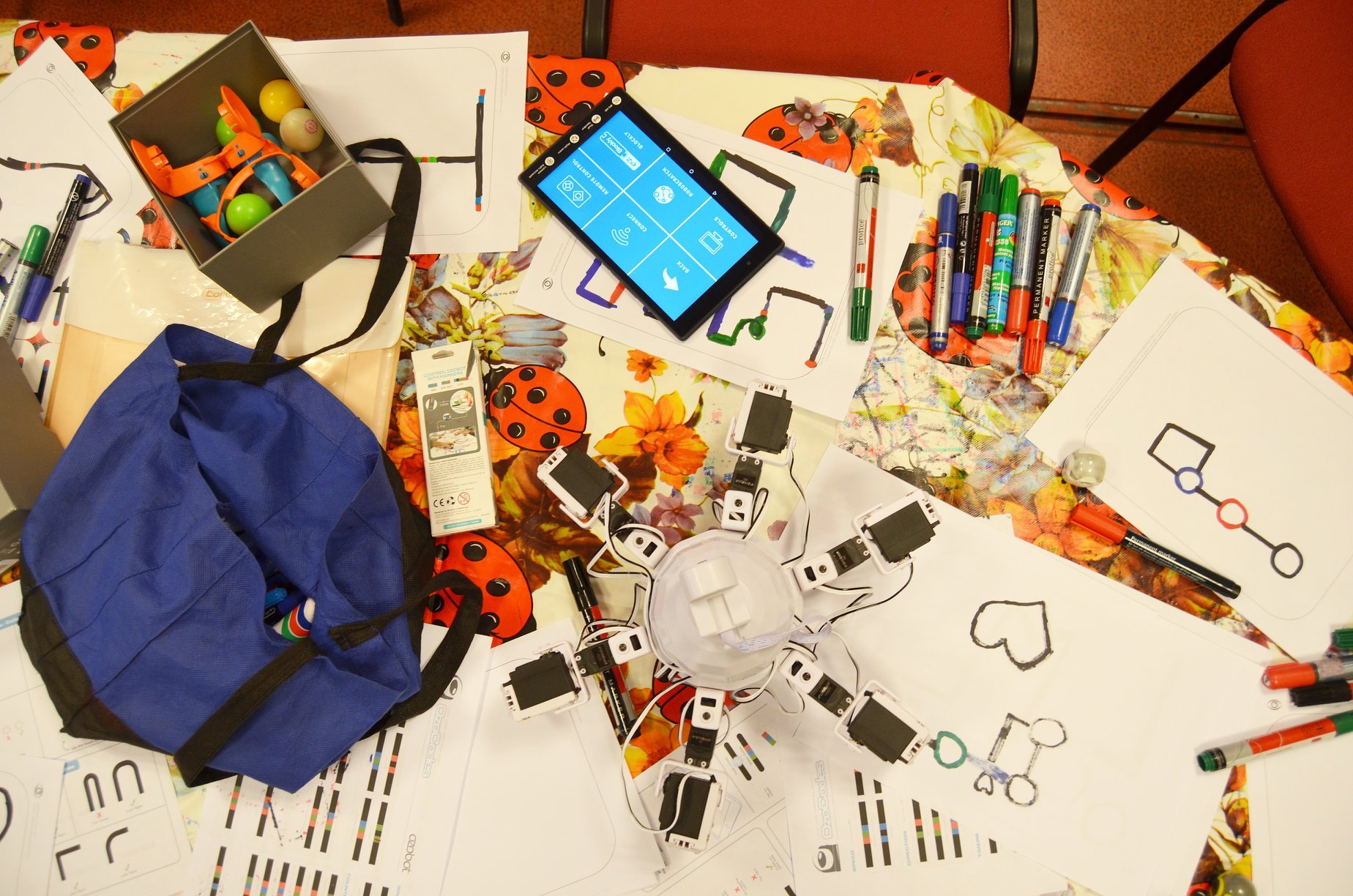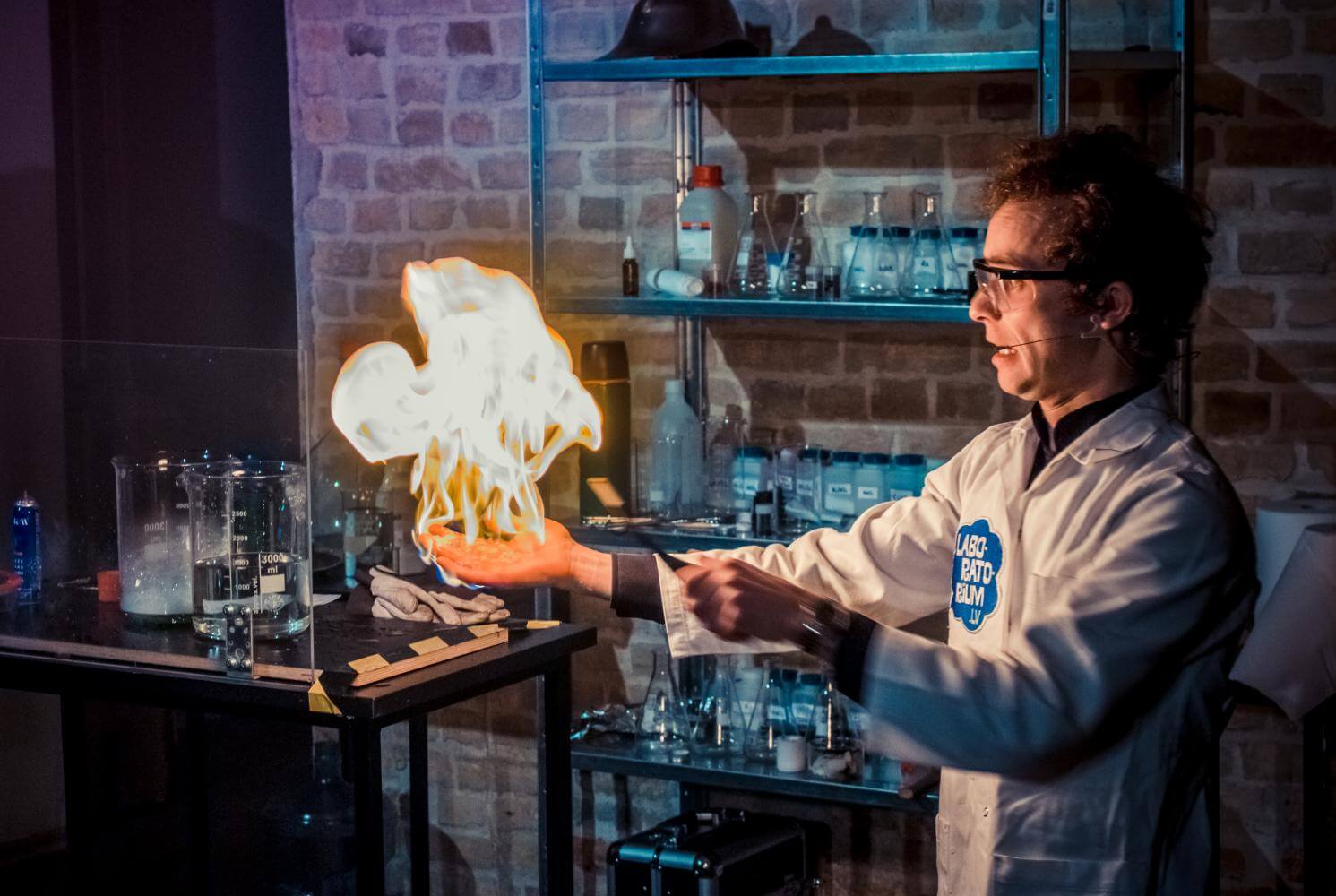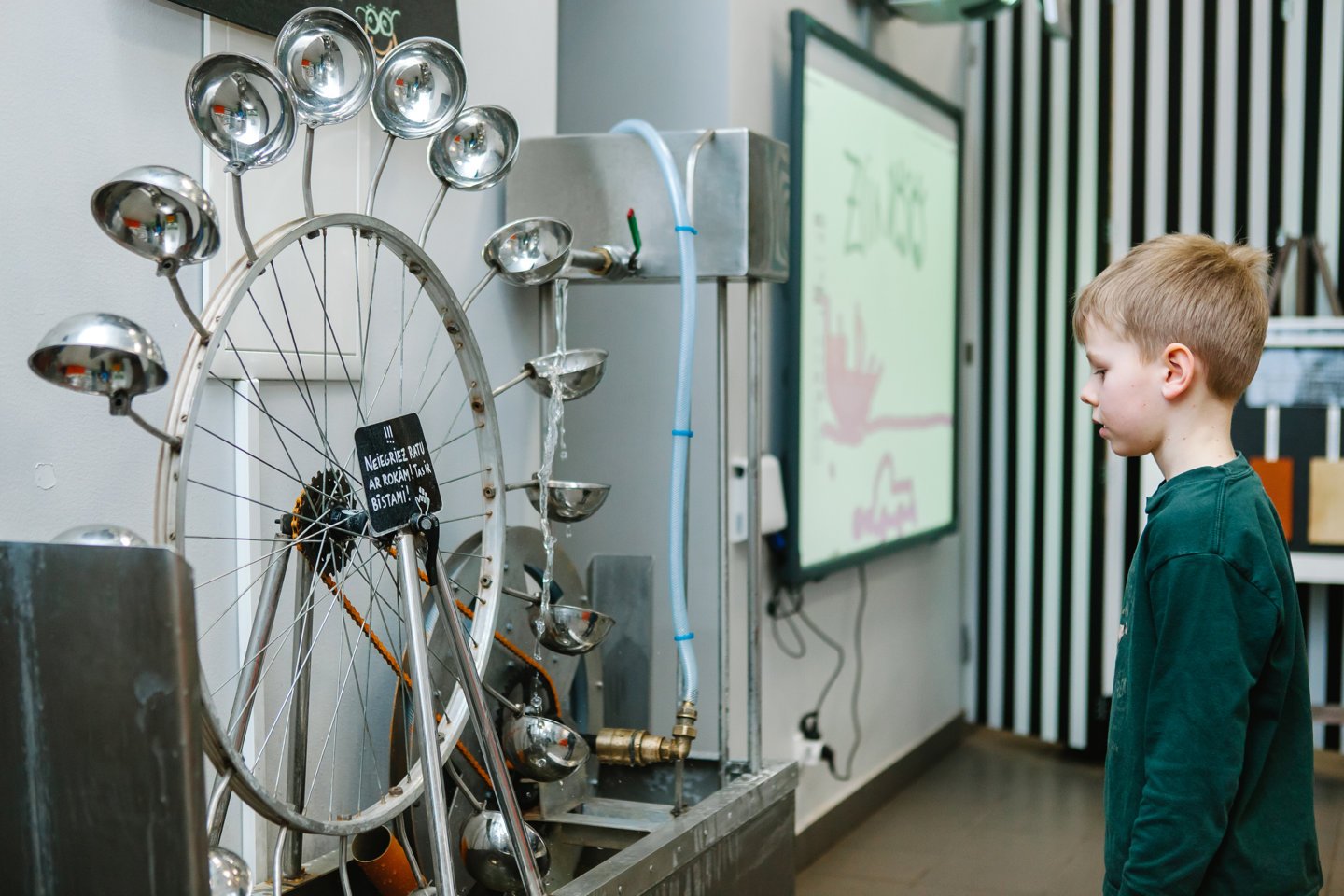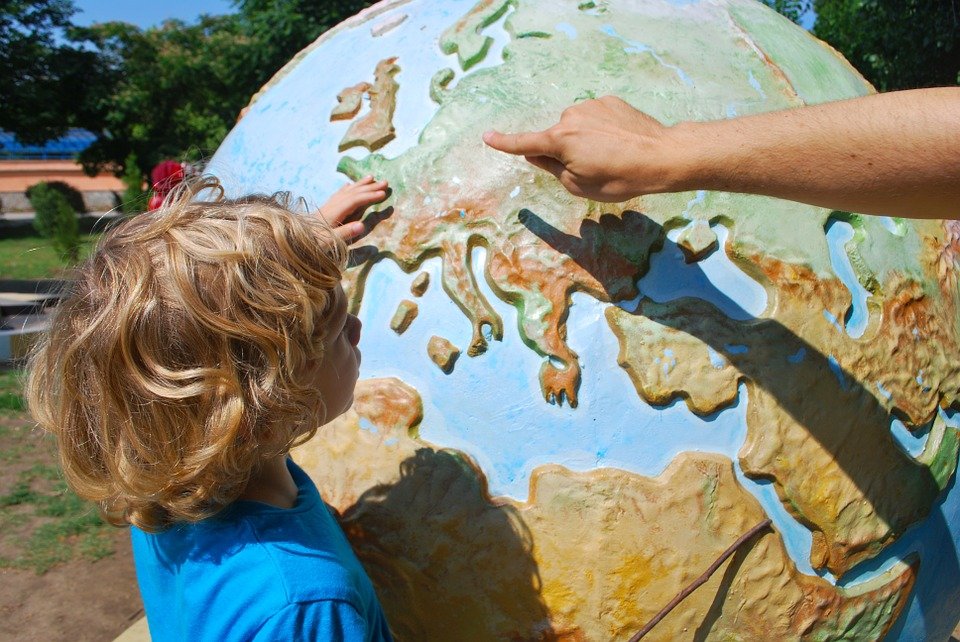One of the directions of social entrepreneurship, supported by many special projects and programmes, is education of children. The article focuses on the implementation of modern teaching methods, suitable for the needs of 21st century, in Latvia and Lithuania. Attractive and balanced teaching of Science, Technology, Engineering and Mathematics (STEM) to children from early age would provide an opportunity to fill the labour market of future with necessary skills and competences related to the STEM. Also, proper understanding of STEM importance in our development and sustainable living brings new social innovation ideas into life and is willing to help thousands and millions.
As study on STEM learning in Latvia, Estonia and Lithuania* has shown, there is no common understanding of STEM and its implementation in formal elementary schools, and it is based mainly on private initiatives, which are not sustainable enough, if they are not supported on a constant basis. Therefore, financial stability of business with a social mission could be a solution to the problems in education: low motivation to study, low interest in technology and engineering studies, low awareness of connection between the studies and real life, lack of creativity, inability to work in teams, lack of hands-on approach etc. Social entrepreneurship is the way of proving the need of STEM implementation and a great outsourcing opportunity for modern schools and families, which lack own resources to ensure STEM oriented education for their children. For now, STEM learning is more accessible in bigger cities as an informal of non-formal education, which is offered in after-schools lessons, scientific theatres or sessions, science centres, technological and scientific competitions and exhibitions etc. Mainly STEM activities are offered by NGOs, private enterprises, sometimes with the support of local governmental institutions, private technical elementary and high schools and other educational entities.
As a social enterprises, STEM educational centres are still in the very beginning of the movement, as not everybody is familiar with the benefits of STEM as a teaching concept. However, there are some, which develop their social businesses for children STEM education, attracting support of private and public funds, participating in different start-up-related activities, social business incubators, accelerators, competitions, conferences etc. In the context of three Baltic countries, we have found the following examples of social enterprises in STEM education:
School of Robotics, Latvia
School of Robotics is an educational project developed by Latvian social enterprise AgirVision. Apart from various technological solutions, enterprise offer educational activities for pupils in the fields of robotics. It started with the activity of Kaspars Čaba, who developed robots as a hobby and inspired by his sons, which resulted in investments into new robots and cooperation with the local school in Ikšķile, Latvia. The first group of children willing to participate in  robotics lessons was formed and since then this initiative has grown into the social enterprise, which has subsidiaries in 5 schools of Latvia, already offers more lessons to other schools, as well as plans to open new subsidiaries.
robotics lessons was formed and since then this initiative has grown into the social enterprise, which has subsidiaries in 5 schools of Latvia, already offers more lessons to other schools, as well as plans to open new subsidiaries.
The School of Robotics aims to create sustainable network of schools, where pupils aged 7-12 years would have an opportunity to acquire knowledge and skills in robotics, implementing STEM oriented learning, like basics of magnetism, electricity etc. Therefore enterprise encourage school teachers of math and physics to collaborate and initiate afterschool activities in robotics, providing with necessary methodological materials, equipment and trainings for teachers and pupils.
Picture source: https://www.facebook.com/agirvisionrobotuskola/
bit&Byte, Lithuania
bit&Byte is a social enterprise in Lithuania, which offers programming classes for children without previous experience in this field. Company transforms natural curiosity of 7-12 years old children into real abilities to think logically, work in teams and learn each from other, as well as solve problems in creative way, which are important elements of STEM learning. Social enterprise teaches basics of programming in a groups, combining them with experimentation and challenges, not only in Lithuanian, but also in English and German. Children learn how to experiment with programming, develop apps, microcomputers, music, graphic design, games and try out different gadgets. Also bit&Byte organizes some demonstrations and classes in elementary schools in order to create an interest of children in programming, engineering and other fields of STEM.
experience in this field. Company transforms natural curiosity of 7-12 years old children into real abilities to think logically, work in teams and learn each from other, as well as solve problems in creative way, which are important elements of STEM learning. Social enterprise teaches basics of programming in a groups, combining them with experimentation and challenges, not only in Lithuanian, but also in English and German. Children learn how to experiment with programming, develop apps, microcomputers, music, graphic design, games and try out different gadgets. Also bit&Byte organizes some demonstrations and classes in elementary schools in order to create an interest of children in programming, engineering and other fields of STEM.
Picture source: https://www.facebook.com/bitByteAkademija/
Laboratorium.lv, Latvia
Laboratorium.lv is educational and entertaining social enterprise, that offers educational classes, theatre performances, programs for holidays and special events, that are fully dedicated to exciting sciences. Laboratorium.lv has participated in Reach for Change incubator for social enterprises and gained recognition as one of the best “Entrepreneur of a Good Will 2017” (“Labās gribas uzņēmējs 2017”). Offered activities are meant for children older than 5 years and are aimed at engaging children into science. During the working days Laboratorium.lv organizes weekly lessons in physic and chemistry, but on Saturdays and Sundays offers attractive science theatre performances dedicated to different scientific topics, such as ”The Secrets of Sounds”, ”What Every Pupil Need to Know”, ”Short Circuit”, ”Fiery Science” etc. All activities are adjusted to three different age groups – children, adolescents and adults, so the events and performances organized by the social enterprise are not targeted on children only. Adults and whole companies are also interested in scientific shows – for private of commercial purposes.
Change incubator for social enterprises and gained recognition as one of the best “Entrepreneur of a Good Will 2017” (“Labās gribas uzņēmējs 2017”). Offered activities are meant for children older than 5 years and are aimed at engaging children into science. During the working days Laboratorium.lv organizes weekly lessons in physic and chemistry, but on Saturdays and Sundays offers attractive science theatre performances dedicated to different scientific topics, such as ”The Secrets of Sounds”, ”What Every Pupil Need to Know”, ”Short Circuit”, ”Fiery Science” etc. All activities are adjusted to three different age groups – children, adolescents and adults, so the events and performances organized by the social enterprise are not targeted on children only. Adults and whole companies are also interested in scientific shows – for private of commercial purposes.
Picture source: http://www.laboratorium.lv/
ZINOO centre, Latvia
ZINOO is a science centre for children, whole families and school classes, which offers interactive expositions for learning mathematics, physics, biology, chemistry, engineering and  other STEM-related subjects in a fun way. It was created with the support of EEA/Norway grants in 2011 and since then has developed four subsidiaries in different cities of Latvia.
other STEM-related subjects in a fun way. It was created with the support of EEA/Norway grants in 2011 and since then has developed four subsidiaries in different cities of Latvia.
ZINOO centre offers exhibitions, sumer camps, lessons about different topics of physics, recycling, robotics and other for private groups of school classes. Also social enterprise organises parties for children or adults with attractive science shows, as well as “Curiosity Days in School” as an outbound whole day event.
Additionally, if offers free of charge entrance for disabled people, as well as reduced tickets in a framework of cooperation with other socially responsible businesses in Latvia.
Picture source: https://www.zinoo.lv















Hey, thanks for the article.Really thank you! Really Great.